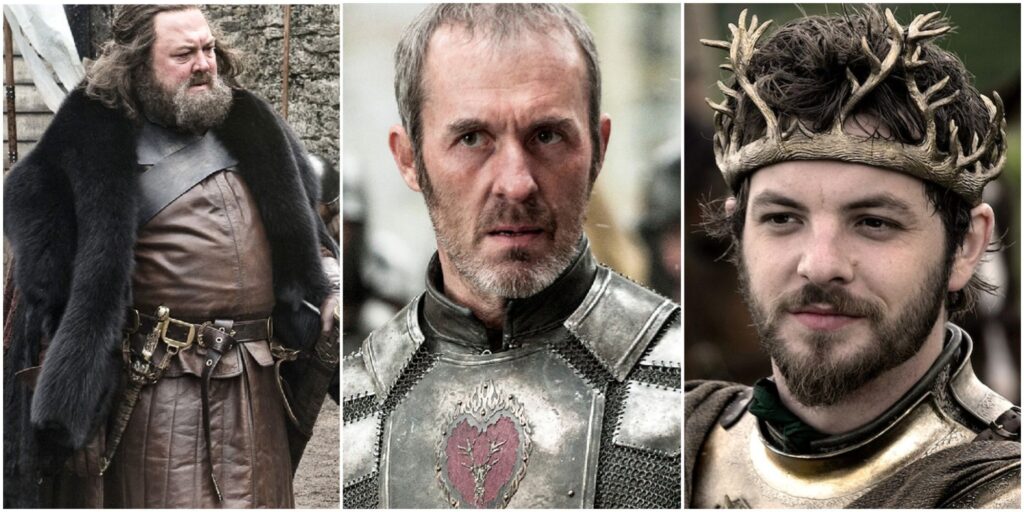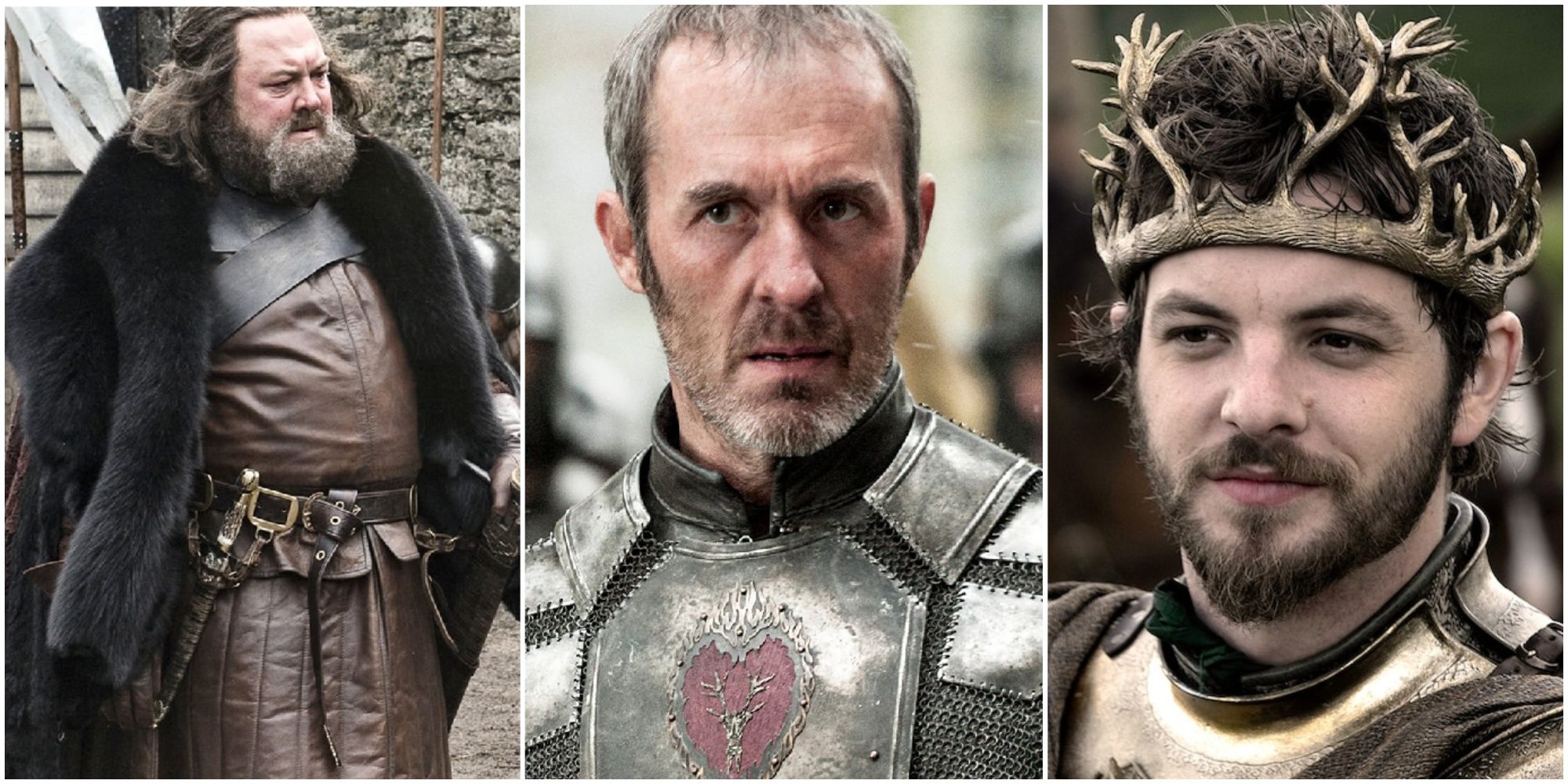
Robert Baratheon in Books: Exploring the Character Beyond the Screen
Robert Baratheon, the larger-than-life king of Westeros, is a figure instantly recognizable to fans of HBO’s Game of Thrones. However, the televised portrayal only scratches the surface of the complex and often contradictory character depicted in George R.R. Martin’s A Song of Ice and Fire book series. This article delves into the literary Robert Baratheon, examining his motivations, flaws, and the impact he had on the events that shaped Westeros. We will explore how the books provide a richer understanding of his reign and the seeds of its inevitable downfall.
The Warrior King: A Glorious Rebellion and a Troubled Reign
Robert Baratheon’s claim to fame lies in his leadership of Robert’s Rebellion, a war that toppled the Targaryen dynasty. The books vividly portray Robert as a charismatic and formidable warrior, his strength and battle prowess legendary. His warhammer became a symbol of defiance against the perceived tyranny of the Mad King, Aerys II Targaryen. The rebellion itself is a pivotal event, described through the eyes of various characters, offering glimpses of Robert’s bravery and strategic mind on the battlefield. But, the books also highlight the brutal realities of war, and the trauma that Robert carries with him long after the fighting ceased.
The books differ from the show in how much they reveal about the lead-up to the rebellion. While the show focuses on the immediate aftermath of Lyanna Stark’s alleged kidnapping, the books provide more detail on the growing discontent with Aerys’ rule and the political maneuvering that ultimately led to the uprising. Robert’s relationship with Eddard Stark, his foster brother and closest friend, is also explored in greater depth, establishing the foundation of their unwavering loyalty and the tragic consequences of their differences in temperament. [See also: Eddard Stark’s Moral Compass]
Robert’s Flaws: Wine, Women, and Wasted Potential
While Robert’s victory on the battlefield secured him the Iron Throne, his reign is marked by a gradual decline into decadence and apathy. The books paint a portrait of a king more interested in feasting, hunting, and bedding women than in the affairs of state. This is a crucial aspect of the literary Robert Baratheon. His disinterest in governing allows the small council to wield significant power, often leading to corruption and infighting. The weight of the crown and the responsibility of ruling a kingdom prove too much for a man who craves the thrill of battle and the fleeting pleasures of the flesh.
The novels showcase how Robert’s unresolved grief over Lyanna Stark’s death continues to haunt him. He idealizes her memory, unable to move on and find happiness in his marriage to Cersei Lannister. This emotional baggage contributes to his self-destructive behavior and his inability to connect with his wife, fueling the animosity and distrust that permeates their relationship. The books offer a nuanced perspective on the complex dynamics within the royal family, highlighting the consequences of Robert’s emotional unavailability and his failure to provide a stable and loving environment for his children, or rather, the children he believes are his. The true parentage of Joffrey, Myrcella, and Tommen is a central plot point, and Robert Baratheon‘s obliviousness to the truth underscores his detachment from reality.
The Impact of Robert Baratheon’s Reign
The consequences of Robert Baratheon‘s negligence are far-reaching, setting the stage for the chaos and conflict that engulf Westeros after his death. The books meticulously detail the growing tensions between the great houses, the simmering resentments, and the power struggles that ultimately erupt into the War of the Five Kings. Robert Baratheon‘s failure to address these underlying issues creates a volatile political landscape ripe for exploitation by ambitious and ruthless individuals like Petyr Baelish and Cersei Lannister. [See also: The Intrigues of Petyr Baelish]
The books emphasize the importance of succession and the dangers of a weak or contested claim to the throne. Robert Baratheon‘s lack of legitimate heirs throws the realm into turmoil, as various factions vie for power and the Iron Throne. Stannis Baratheon, Robert Baratheon‘s brother, emerges as a claimant based on primogeniture, while other characters see the opportunity to seize the throne for themselves. The books provide a detailed examination of the legal and historical precedents surrounding succession, highlighting the complexities and ambiguities that contribute to the ensuing conflict. The fact that Robert Baratheon never secured the succession is a major factor leading to the war. He spent more time drinking and hunting than dealing with the kingdom’s problems.
Robert Baratheon and Ned Stark: A Friendship Tested
The relationship between Robert Baratheon and Eddard Stark is central to the events of A Song of Ice and Fire. Their bond, forged during their shared upbringing in the Vale of Arryn and strengthened by their participation in Robert’s Rebellion, is initially presented as a symbol of loyalty and honor. However, the books reveal the growing strain on their friendship as their values and priorities diverge. Robert Baratheon‘s descent into decadence and his willingness to compromise his principles clash with Ned’s unwavering commitment to justice and integrity. [See also: The Honor of Eddard Stark]
Ned’s appointment as Hand of the King is intended to bring stability and order to Robert Baratheon‘s court. However, their differing approaches to governance and their conflicting views on morality create friction and ultimately lead to Ned’s downfall. The books illustrate the tragic consequences of their inability to reconcile their differences, highlighting the corrosive effects of power and the challenges of maintaining integrity in a corrupt environment. Robert Baratheon‘s inability to see the danger lurking in his court, and his reliance on figures like Littlefinger, ultimately seals his fate and sets the stage for the war to come.
Robert Baratheon: A Tragic Hero?
While Robert Baratheon is often portrayed as a flawed and ultimately self-destructive figure, the books also offer glimpses of his underlying humanity. His charisma and genuine affection for his friends are undeniable, and his regret over Lyanna Stark’s death adds a layer of complexity to his character. The books explore the possibility that Robert Baratheon was ultimately ill-suited to be king, a warrior at heart who longed for the glory of battle but lacked the temperament and skills necessary to rule a kingdom. [See also: The Targaryen Dynasty]
Whether Robert Baratheon is viewed as a tragic hero or simply a cautionary tale, his character remains a fascinating and complex figure in the A Song of Ice and Fire universe. The books provide a far richer and more nuanced portrayal of his reign and his impact on Westeros than the televised adaptation. Exploring the literary Robert Baratheon allows readers to gain a deeper understanding of the events that shaped the world of Westeros and the motivations of the characters who inhabit it. Furthermore, the books give insight into his true character, his strengths and weaknesses, and the impact he had on the realm. Robert Baratheon‘s legacy is one of both triumph and tragedy, a reminder that even the most valiant heroes can be undone by their own flaws. He was a king who won a throne but lost his way, and his story serves as a powerful commentary on the nature of power, responsibility, and the enduring consequences of unresolved grief. He should have been a great king, but his flaws prevented it. Robert Baratheon’s story is a cautionary tale of wasted potential and the corrosive effects of power.
The books show Robert Baratheon as a more complex character than the television series does. His inner struggles are more apparent, and his inability to cope with the pressures of kingship is more pronounced. He is a warrior king who longed for the battlefield, but he was ultimately ill-equipped to rule a kingdom in peacetime. Robert Baratheon‘s story is a tragedy of a man who was never truly happy, even when he achieved his greatest victory.

